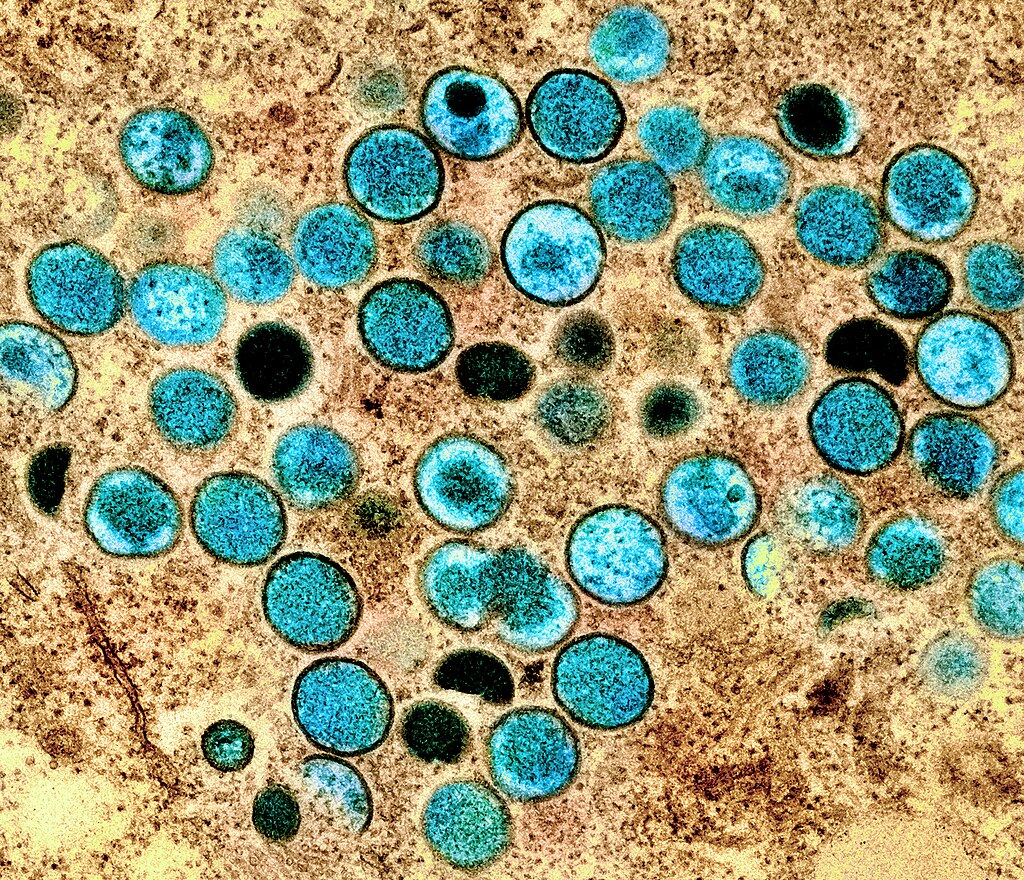Mpox, previously known as monkeypox, is a viral disease caused by the monkeypox virus (MPXV). It can cause a painful rash, enlarged lymph nodes, fever, headache, muscle aches, back pain, and low energy. Most people fully recover, but some can become very sick.
Transmission of Mpox
Mpox is a communicable illness, and it primarily spreads through close contact with an infected person, including:
- Skin-to-skin contact (e.g., touching, sexual activity)
- Mouth-to-mouth or mouth-to-skin contact (e.g., kissing)
- Respiratory droplets (e.g., talking, breathing closely)
People with multiple sexual partners are at higher risk, and it can also spread through contact with contaminated objects, needle injuries in healthcare settings, or in community settings like tattoo parlors. The virus may also be passed from mother to child during pregnancy or birth.
Signs and Symptoms
Symptoms typically begin within a week of exposure but can appear 1-21 days after infection, so it’s important to identify them. Common symptoms include:
- Rash
- Fever
- Sore throat
- Headache
- Muscle aches
- Back pain
- Low energy
- Swollen lymph nodes
The rash often starts on the face and spreads to the body, including the palms and soles. It may start as a flat sore, develop into a blister, and eventually crust over. Some people may have a few lesions, while others may have hundreds, and they can appear anywhere on the body, including the genitals, anus, mouth, and throat.
Diagnosis
Identifying mpox can be challenging as other infections may have similar symptoms, so testing is crucial for early diagnosis and treatment. The preferred laboratory test is a polymerase chain reaction (PCR) test on skin, fluid, or crusts from the rash.
Treatment and Vaccination
The goal of treatment is to manage symptoms and prevent complications, although early and supportive care is also important.
- Vaccination: The mpox vaccine can help prevent infection. The WHO recommends it for high-risk individuals, including healthcare workers, people with multiple sexual partners, and those in contact with someone who has mpox.
- Antivirals: Some antivirals are being evaluated for treatment, but their effectiveness is still under investigation.
Prevention of Mpox
- Avoid close contact with people who have mpox.
- Practice good hygiene: Wash hands frequently and avoid touching your face.
- Get vaccinated: If you’re at high risk.
Outbreaks
Mpox outbreaks have occurred in various regions, with recent global outbreaks affecting primarily men who have sex with men.
Stigma and Discrimination
Stigma and discrimination against people with mpox are unacceptable and can hinder public health efforts.
WHO Response
The World Health Organization (WHO) is working to prevent and respond to mpox outbreaks by coordinating research, strengthening health systems, and facilitating access to vaccines, treatments, and diagnostics.
For more information, please refer to the official WHO website.



